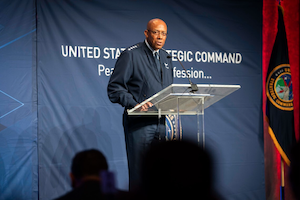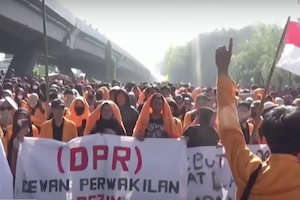World
Australia's "Right to Disconnect" Law Comes into Effect, Protecting Employees' After-Hours Rights

To protect employees' rights after working hours, Australia passed the "Right-to-Disconnect" bill earlier this year, which came into effect on August 26. The law legally allows employees to refuse company contact outside of work hours, except in cases of company emergencies. Disputes between employers and employees will be resolved by an arbitration body.
The "Right-to-Disconnect" bill, passed by the Australian Senate in February and effective from the 26th, applies to companies with more than 15 employees, while companies with fewer than 15 employees have a 12-month grace period. According to the bill, employees can refuse to respond to company emails and phone calls outside of work hours, and companies cannot penalize or dismiss employees for exercising this right. The maximum penalty for companies violating the law is AUD 94,000 (approximately TWD 2.06 million).
However, there are exceptions: companies can still contact employees for emergency situations or if the employees have irregular working hours. Employees must provide a valid reason to refuse contact, and any disputes will be adjudicated by the Fair Work Commission. Additionally, the bill allows for flexibility in pre-agreed agreements between employers and employees.
Australian unions have welcomed the new law, while employers have criticized it as being hastily implemented and vague, with too many gray areas. This has sparked controversy and concerns about its impact on productivity, with some employees worried about not benefiting significantly from the new regulations. Similar laws have already been implemented in over 20 countries worldwide, mostly in Europe and Latin America, aiming to help employees achieve a better work-life balance.
- 27 reads
Japan Reports Deadly 'Flesh-Eating Bacteria' Outbreak: Over 1,000 Infected and 250 Dead

Japan has recently experienced a deadly outbreak of "flesh-eating bacteria," a rare pathogen that has rapidly spread across the country, leading to thousands of infections and at least 250 deaths. The outbreak has drawn significant national attention, and both the government and medical institutions are urgently responding to try to curb further spread of the disease.
The outbreak of "flesh-eating bacteria" in Japan is escalating, with 1,333 cases reported this year and at least 250 deaths. Most of the patients are concentrated in urban areas, with 184 cases in Tokyo alone. The government is urging people with similar symptoms to seek medical attention as soon as possible. According to the latest statistics from Japan's Ministry of Health, Labour and Welfare, more than 1,000 people nationwide have been infected with this pathogen, scientifically known as "Necrotizing Fasciitis" caused by group A Streptococcus. This bacteria primarily infects soft tissues and destroys skin, muscles, and other soft tissues at an extremely rapid pace. Without timely treatment, the condition often worsens quickly and can become life-threatening.
This year, over 60% of infections have been caused by the "rapidly progressive group A Streptococcus," which is higher than the 30-50% reported in previous years. As of June 16, among the 656 patients infected with this strain, 288 acquired it through wounds, while 59 were infected through droplets. The outbreak initially focused on Tokyo and its surrounding areas but has gradually spread to other regions. Medical experts note that the speed of transmission is unprecedented, with many of the infected being elderly or chronic disease patients with weakened immune systems. Due to the high lethality of this bacteria, many patients develop severe symptoms within a few days of onset and ultimately die.
The Japanese government has activated emergency response measures and is urging the public to remain vigilant, practice good hygiene, and avoid crowded public places. At the same time, medical institutions are enhancing monitoring and prevention efforts and accelerating the development of targeted treatments. However, since the transmission routes of the bacteria are not yet fully clear, controlling the outbreak remains a significant challenge.
The Ministry of Health, Labour and Welfare emphasizes that individuals who experience symptoms such as skin redness, pain, or unexplained fever should seek medical attention immediately to avoid missing the optimal treatment window. The government and medical institutions will continue to closely monitor the situation and implement stricter control measures as necessary.
- 50 reads
South Korea and US Hold Large-Scale Amphibious Exercise; Drone Command Participates for First Time

South Korea and the United States have commenced their annual amphibious landing joint military exercise, "Ssang Yong 24," from August 26 to September 7 in the eastern waters of South Korea. This exercise marks the first time that the combined command and control system established by the U.S. and South Korean Marine Corps will lead the training operations. Additionally, South Korea's newly established "Drone Operations Command," founded in September last year, will deploy drones for the first time in this exercise to enhance joint defense operational capabilities.
The South Korean Navy stated that the Ssang Yong exercise, conducted along the east coast and in the Pohang area of North Gyeongsang Province, is designed to counter potential threats of a North Korean invasion. The exercise involves more than 40 ships, including South Korea’s amphibious assault ships, "Dokdo" (LPH-6111) and "Marado" (LPH-6112), and the U.S. Navy’s amphibious assault ship "Boxer" (LHD 5). The exercise also includes over 40 aircraft, such as U.S. F-35B fighter jets, South Korean MUH-1 helicopters, and C-130 transport planes, along with the latest Amphibious Combat Vehicles (ACV) and over 40 South Korean KAAV amphibious assault vehicles, all participating in the amphibious landing operations.
This exercise will also see the first participation of South Korea’s Drone Operations Command, a joint combat unit formed by the South Korean Army, Navy, Air Force, and Marine Corps. The unit will play a reconnaissance role in the Ssang Yong exercise. Additionally, the British Royal Marines are participating for the second consecutive year. This year's exercise, the largest since 2018, involves a series of mission planning, logistics coordination, and projection operations simulating division-level amphibious landing operations to enhance interoperability between the two militaries and maintain regional peace and stability.
- Read more
- 43 reads
U.S. Military Chief Makes Surprise Visit to Jordan, Aims to De-escalate Middle East Tensions

The situation in the Middle East is escalating, with Iran threatening retaliation against Israel as the Israel-Hamas conflict continues to expand. On the 25th, U.S. Joint Chiefs of Staff Chairman General C.Q. Brown began an unannounced visit to the Middle East, aiming to de-escalate tensions and prevent a full-scale conflict.
According to a Reuters report, Brown quietly visited Jordan as the first stop of his Middle East tour on the 25th. He stated that he would also visit Egypt and Israel to gather military perspectives from their leaders. Meanwhile, the U.S. is attempting to broker a ceasefire and hostage exchange agreement between Israel and the Palestinian Islamist group Hamas in Gaza. Brown noted that if successful, it could help to cool down the situation in the region.
The ongoing Israel-Hamas Gaza war, now in its 11th month, has left Gaza in ruins. Israel has been repeatedly clashing with the Hezbollah group, backed by Iran, at the border. Additionally, in late October of last year, the Houthi movement from Yemen began attacking commercial ships in the Red Sea. Pro-Iranian militia groups have also continued their attacks on U.S. forces stationed in Syria, Iraq, and Jordan.
Concerned that Iran might rally its allies to launch new significant attacks, the U.S. military has been actively bolstering its presence in the Middle East in recent weeks. This includes deploying the USS Abraham Lincoln carrier strike group to replace the USS Theodore Roosevelt carrier strike group, sending a squadron of F-22 Raptor fighter jets to the region, and deploying a cruise missile submarine.
Brown emphasized that the additional U.S. military presence is intended to send a strong message to deter a full-scale conflict and to ensure protection if U.S. forces come under attack, stressing that the safety of U.S. troops is the "number one" priority.
- 39 reads
Venezuelan President Re-elected; U.S., EU, and Latin American Nations Reject Outcome

Venezuelan President Nicolás Maduro was recently granted official re-election certification by the country's electoral body. However, this result has sparked significant controversy on the international stage. The United States, the European Union, and several Latin American countries have refused to recognize the election outcome, accusing it of being marred by widespread fraud and unfair practices.
Maduro won the presidential election again in August 2024 and was officially certified as president by the National Electoral Council (CNE) of Venezuela. However, both domestic and international entities have questioned the legitimacy of the election. Critics argue that the electoral process was tainted by government interference, voter intimidation, and media control, making it impossible to ensure a free and fair election.
Following the announcement of the election results, the U.S. State Department quickly issued a statement declaring the election "illegitimate" and reaffirmed that the United States would not recognize Maduro's presidency. The European Union also noted the lack of transparency and international oversight in the election, calling for a fair re-election process.
Several Latin American countries, including Colombia, Brazil, Chile, and Argentina, have also refused to recognize the election results. These governments generally view Maduro's re-election as a "regression of democracy," emphasizing that the Venezuelan people have the right to choose their future. In a statement, the President of Colombia stressed, "This election does not represent the will of the Venezuelan people, and we urge the international community to take unified action in support of the democratic aspirations of the Venezuelan people."
In response to international criticism, the Venezuelan government has strongly pushed back, accusing foreign powers of meddling in domestic affairs and claiming that opponents are trying to destabilize the country. In his speech after receiving re-election certification, Maduro stated that Venezuela's electoral process was "completely legal and transparent," and he accused Western countries of waging a "political and economic war" against his government. Maduro also emphasized that he would continue to advance Venezuela's "path of sovereignty and independence" and called on his supporters to remain united in the face of external pressure and challenges.
- Read more
- 75 reads
Indonesian Citizens Protest Against Congress for Amending Laws for Jokowi's Son

On the 20th, Indonesia's Constitutional Court ruled that candidates for local executive positions must be at least 30 years old. However, Kaesang Pangarep, the youngest son of outgoing President Joko "Jokowi" Widodo, who has been nominated by a political party to run for vice governor of Central Java, will only turn 30 on December 25. This means that the court’s ruling effectively disqualifies Kaesang from running. In response, the Indonesian Congress immediately began deliberating a law amendment to relax the age requirement, sparking large-scale protests across the country.
On the 22nd, thousands of people nationwide took to the streets in response to the call. Angry protesters gathered in front of the Congress, holding banners and signs, attempting to push down barriers, setting tires on fire, throwing stones at police, and forming human walls to confront riot police, leading to intense physical clashes. The police deployed over a thousand officers, using tear gas and water cannons to disperse the crowds.
Many people believe that the Congress's move to amend the Constitutional Court’s ruling is aimed at paving the way for President Jokowi’s son, Kaesang, to run, thereby enhancing Jokowi’s political influence as he nears the end of his term. They argue that this action is politically motivated and undermines democracy.
In the face of the public outrage, the Congress, which had planned an emergency amendment, postponed the discussion due to a lack of quorum. Congress Vice Speaker Sufmi Dasco Ahmad stated that the bill to amend the electoral laws will be reconsidered in the next legislative session, meaning it will not be approved before President Jokowi's term ends.
- 45 reads
The conflict between Lebanon and Israel intensifies as Hezbollah launches rocket attacks on Israel

On the 21st, Hezbollah in Lebanon launched a powerful rocket attack on Israel, firing up to 180 rockets in a single day, causing severe damage to communities along Israel's northern border. This rocket barrage represents Hezbollah's largest-scale attack on Israel since the Israel-Hamas war. Israel subsequently retaliated with airstrikes, leading to an escalation of regional conflict between Lebanon and Israel.
Hezbollah began its rocket assault on Israel’s Golan Heights early on the 21st and continued throughout the day, targeting northern border communities in Israel. Hezbollah stated that the attack was a retaliation for Israel's strike on Lebanon on the 20th, with over 180 rockets fired in total. Hezbollah, a staunch supporter of Hamas, has been continuously launching rocket attacks on northern Israeli border communities since the onset of the conflict in Gaza, resulting in the evacuation of around 60,000 residents from northern Israel. This situation has persisted for over 10 months, with the conflict gradually intensifying from small-scale skirmishes to more significant clashes.
Regarding the ongoing threat from Hezbollah, there is internal disagreement in Israel about whether to launch a comprehensive military campaign against the group. According to a survey by the Israeli National Security Studies Institute (INSS), less than half of the Israeli public supports military action against Hezbollah due to concerns about triggering a regional war. Hezbollah appears to be exploiting these domestic divisions within Israel, continuing localized provocations without escalating to a full-blown conflict, thereby weakening Israel’s defensive capabilities and contributing to a prolonged military and political quagmire.
- Read more
- 38 reads
Blinken's Middle East trip aims to promote a ceasefire between Israel and Palestine, but achieving it in the short term still seems difficult.

Since the outbreak of the Israel-Palestine war, U.S. Secretary of State Antony Blinken has made his ninth visit to the Middle East, seeking the possibility of a ceasefire. However, as he departed the region on the 20th, there remained significant divisions between Israel and Hamas, preventing a ceasefire agreement. At the airport in Qatar, Blinken stated that "time is of the essence" and that a ceasefire must be achieved as soon as possible, along with the release of Israeli hostages. Yet, there are no signs of success for this U.S.-led diplomatic ceasefire effort.
During this visit, both Egypt and Qatar cooperated with the U.S. in hopes of achieving a ceasefire for Gaza, including meetings with Qatari Foreign Minister Mohammed bin Abdulaziz Al-Khulaifi and Egyptian President Abdel Fattah el-Sisi to discuss how to end the conflict. Sisi emphasized that now is a crucial moment for a ceasefire and that the Middle East conflict should not be allowed to escalate further, causing more severe consequences. He also pointed out that international recognition of Palestine as a state and the implementation of a two-state solution are essential for maintaining regional stability.
Blinken reiterated after his meeting with Israeli Prime Minister Benjamin Netanyahu on the 19th that the latter accepted a "transitional plan" for a ceasefire. He urged the Palestinian Islamic Resistance Movement (Hamas) to also accept the plan and finalize the details as soon as possible to reach an agreement in the coming days. However, the Israeli government has neither confirmed nor denied acceptance of Blinken's "transitional plan." On the contrary, Netanyahu insisted on the 20th that Israel would retain troops in the Philadelphia Corridor along the Gaza-Egypt border, which has become a major obstacle to reaching an agreement. Blinken reiterated that the U.S. opposes a long-term Israeli occupation of Gaza and advocates for a gradual withdrawal of troops after the conflict.
Since Hamas's surprise attack on Israel on October 7th of last year, which resulted in 1,200 deaths and about 250 hostages, Israel's retaliatory actions against Gaza have caused approximately 40,000 Palestinian deaths.
- Read more
- 60 reads
Social pressure is too high: Over 440,000 'lying flat' individuals in South Korea reach a new record

The number of "lying flat" youth in South Korea aged 15 to 29 has reached a historic high of 443,000, marking a 10.4% increase from last year. The term "lying flat" refers to individuals who, while not suffering from severe illness, choose not to work temporarily. These youths represent 5.4% of South Korea's 8.15 million young people, setting a new record.
According to reports, this non-economic activity population consists of those who, despite not having illnesses or disabilities, opt to "lie flat" without a specific reason. They are neither classified as employed nor unemployed.
Among the lying flat youth, 75.6% have no intention of working at all, while those who do seek employment face issues such as mismatched salaries and conditions, and a lack of skills and experience. With the increase in the lying flat population, the youth employment rate in South Korea fell to 46.5% in July, marking three consecutive months of decline. However, because the lying flat individuals are not counted in the unemployment figures, the unemployment rate actually decreased by 0.5 percentage points.
Academics believe that the lack of quality job opportunities and the slow recovery of labor-intensive industries have exacerbated the polarization of the job market. The wage gap between large enterprises and small-to-medium-sized businesses is 1.6 times, with the average salary in large companies at 5.91 million won in 2022, compared to 2.86 million won in smaller businesses. Additionally, the retirement age in large enterprises is extended, and smaller businesses prefer candidates with experience, making it harder for youth to find jobs.
This year, over 30% of young people have opted for short-term contracts of less than a year as their first job. The lying flat youth cause a dual loss to society and the economy: their knowledge and skills are wasted, the country fails to fully utilize its labor force, and young people, unable to find ideal jobs, forgo relationships, marriage, and childbirth. This leads to reduced income, weakened domestic demand, and overall adverse effects on the economy and society.
- 51 reads
Kamala Harris Gains Popularity: Poll Shows Nearly Half of U.S. Adults Hold Favorable View

A recent poll shows that 48% of American adults have a favorable view of Democratic presidential candidate Kamala Harris, surpassing President Biden's 38% favorability rating before he withdrew from the race.
As the Democratic National Convention (DNC) approaches, Harris is set to attend, supported enthusiastically by fellow Democrats. Her popularity has not only improved, but public recognition of her is also higher than that of Biden before he withdrew. Additionally, Harris slightly outperforms Republican presidential candidate Donald Trump, who holds a 41% favorability rating.
Among American men, about half have a negative view of Harris, with roughly 60% of white men expressing disapproval. White men without a college degree, a demographic traditionally strong in Trump’s support base, are particularly unfavorable toward Harris. On the other hand, Harris enjoys better favorability among white women, with 49% holding a positive view and 46% negative. Among those over 60 years old, around 50% view her favorably, up from 46% in June. It appears that if Harris is to win, she must work to suppress Trump's ability to galvanize white male voters.
Overall, as both Harris and Trump's campaign teams rush to define her as a new candidate in the race, more Americans are forming new opinions about her, leading to an increase in her favorability. The percentage of Americans who feel they do not know enough about Harris to evaluate her has dropped from 12% in June to 6% now.
Additionally, Harris leads Trump by 9% in the area of "possessing an effective spirit of public service." Many polls indicate that as Harris takes up the mantle of the Democratic Party, more voters are beginning to see her as more suited for the presidency than Biden, and she is receiving more support than Trump in many aspects, successfully reversing Trump's earlier lead.
- 74 reads
Human Rights
Ringing FOWPAL’s Peace Bell for the World:Nobel Peace Prize Laureates’ Visions and Actions

Protecting the World’s Cultural Diversity for a Sustainable Future

The Peace Bell Resonates at the 27th Eurasian Economic Summit

Declaration of World Day of the Power of Hope Endorsed by People in 158 Nations

Puppet Show I International Friendship Day 2020

